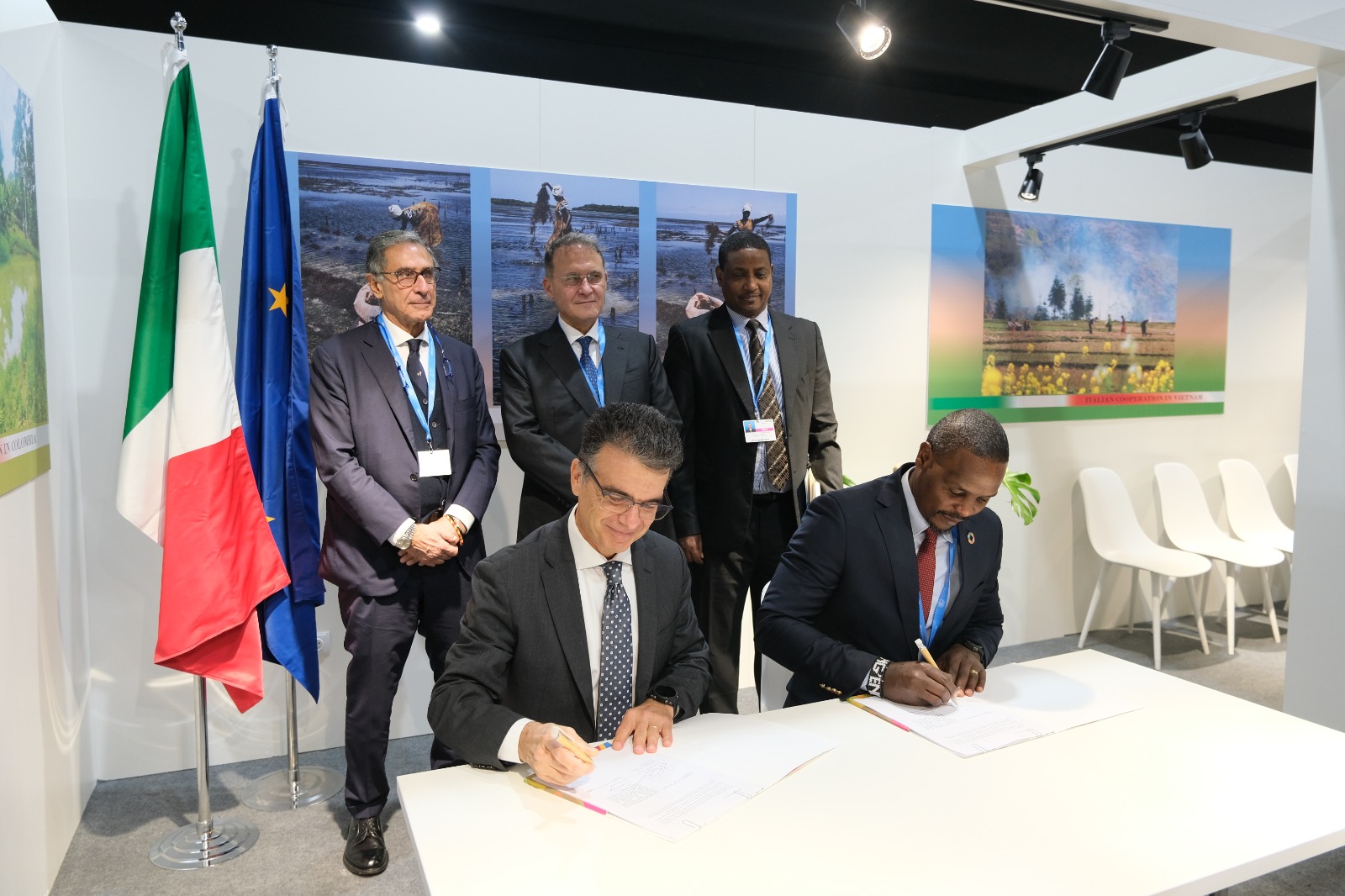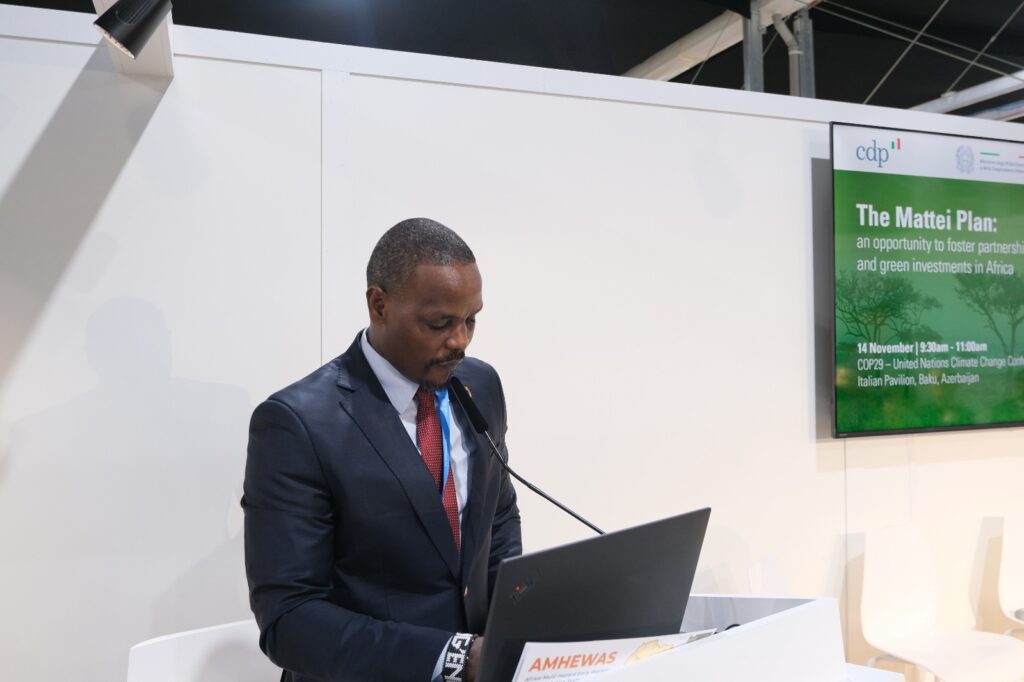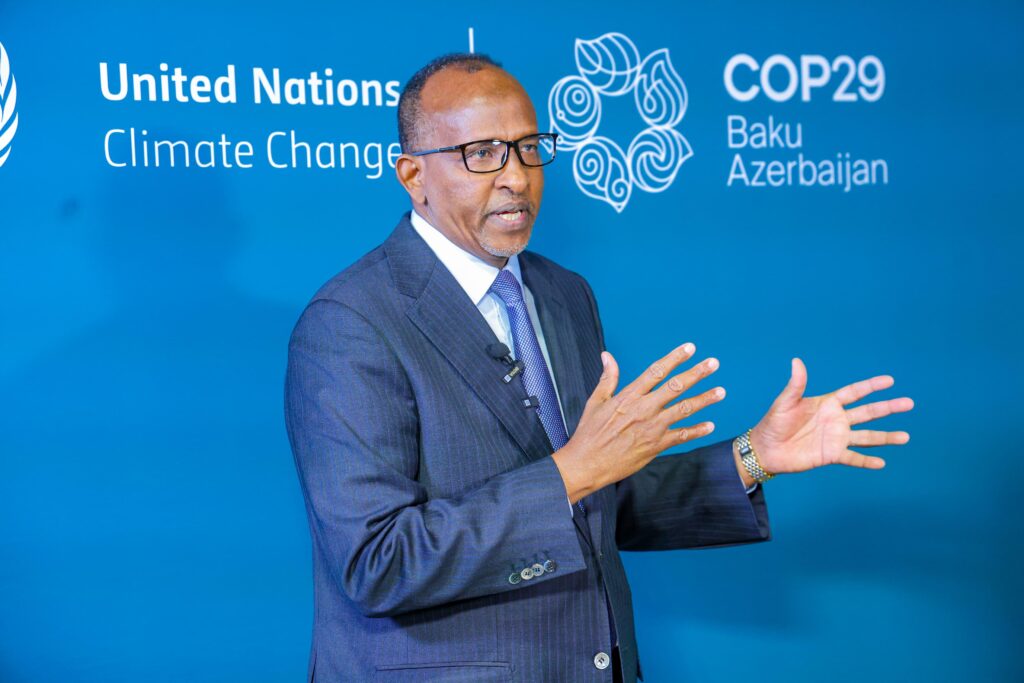
Kenya Signs Deal with Italy for Access to 5.5 Billion Euros Mattei Plan to Boost Climate Resilience in Africa » Capital News
BAKU, Azerbaijan Nov 17 – Kenya and Italy have signed a new framework for cooperation that grants Kenya access to Italy’s 5.5 billion euros in Mattei Plan, a fund dedicated to supporting climate resilience and sustainable development across Africa.
The agreement was formalized by Kenya’s Environment and Climate Change Principal Secretary, Dr. Festus Ng’eno and Italy’s Director for International Development Cooperation, Paolo Lombardo, on the sidelines of COP29 in Baku, Azerbaijan.
The Mattei Plan is Italy’s innovative partnership strategy for African countries, with funds allocated through grants, credits, and guarantees for projects aimed at mitigating climate impacts and fostering sustainable growth.

“The Plan will support Kenya’s ambitious climate goals, including greenhouse gas reduction and building resilience in vulnerable communities,” Dr. Ng’eno said.
Kenya’s negotiators at COP29, led by Kenya’s climate envoy, Ambassador Ali Mohamed, are pushing for substantial commitments from developed nations, advocating for $1.3 trillion in climate financing for Africa to address severe climate impacts on the continent.
“Kenya supports ongoing discussions under the UNFCCC framework on doubling adaptation finance. The ambition should be to triple the financing so as to meet the growing priorities of developing countries,” Dr Ng’eno said.
Adaptation and mitigation finance flows, he said, should not place extra burden to developing country parties and this requires reforms in the global financial architecture to make them fit for purpose in responding to climate impacts.
“This is a finance-focused COP, and we are confident in our leadership,” Ng’eno stated, emphasizing that Africa’s demands align with the urgent need for meaningful climate finance.
Environment CS Aden Duale underscored the importance of the $1.3 trillion fund, calling on the global north to bear responsibility for Africa’s climate resilience initiatives. Duale remarked, “We want the global north to pay for this,” highlighting the urgency of Africa’s demand.

However, the proposed sum has faced resistance from wealthier nations, who argue that the figure is overly ambitious, citing global economic constraints. This disparity reflects ongoing challenges at COP29, as African negotiators work to bridge the financing gap and address sustainable solutions in agriculture, food security, and environmental research.
The conference, which continues until November 22, has drawn global attention, with Azerbaijan’s role as a major fossil fuel producer sparking scrutiny.
About The Author